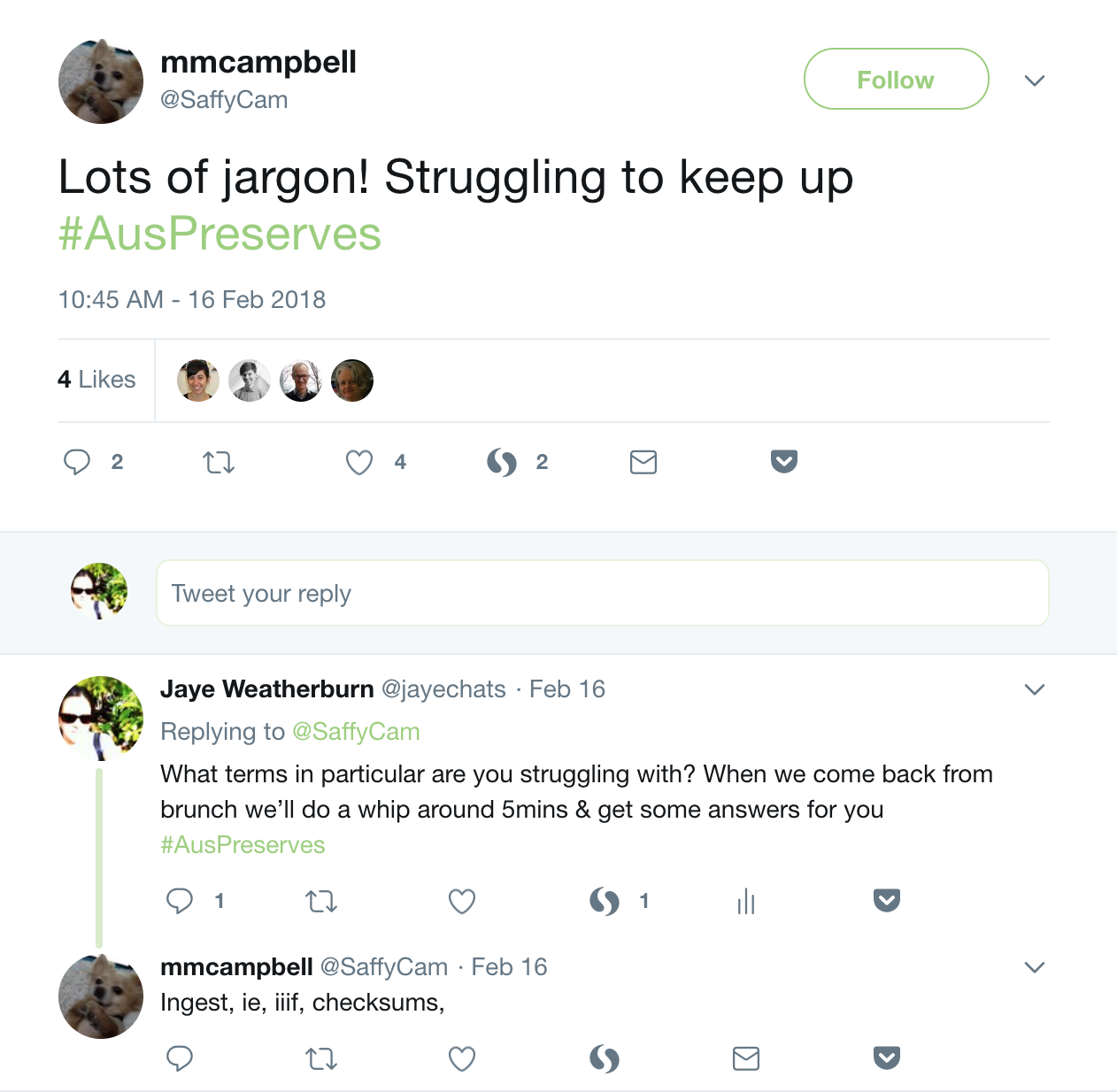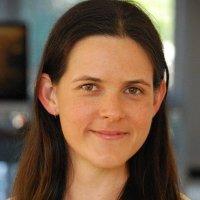On February 16 2018, The University of Melbourne Library Digital Scholarship team organised and hosted the inaugural “Australasia Preserves” event. This event brought together 75 people interested in digital preservation in Australia and New Zealand, from a variety of different institutions and organisations.
Our goal was to start to build a community of practice for digital preservation in our region for all interested people and organisations, regardless of institutional affiliation or skill level. We’ve wanted to get a community like this together for a while. Because we are a very small team working on a very big digital preservation project, we have a keen interest in generating greater connections with other digital preservation initiatives, projects, and work being done, and in exploring opportunities for collaboration.
To kick off, I welcomed everyone then spoke briefly about the University of Melbourne digital preservation project I’m working on. Key points included:
- We’ve done two years of investigatory work, benchmarking the current level of digital preservation awareness and activity at the university in various areas
- We’ve identified and prioritised gaps for improvement
- Our findings so far have enabled us to draft a business case in order to seek funding for the next two years of work, including implementing preservation storage, improving skills and training for digital preservation, and improving governance and management for long-term preservation
Next up, we heard lightning talk presentations. We chose this format to maximise sharing of different areas and their current work or current challenges. Six speakers from Australia and three from New Zealand spoke for five minutes each. Details of the speakers can be seen on the event page.
There was active participation on Twitter (#AusPreserves). During the lightning talks, we noticed a comment about “jargon” that had popped up online.

And so, in agile project fashion, we whipped around the room quickly, inviting attendees to give explanations for various terms that were of concern. There’s already some great resources available for explaining digital preservation terms, most notably the Digital Preservation Handbook Glossary which we pointed to, and our crowd-sourced jargon busting can be found in the collaborative notes from the event.
The second part of the event involved exploring, as a group, what an ongoing Australasian digital preservation community of practice could be like. Small group discussion was reported back to the whole room.
Three questions focussed the discussion:
- How could an Australasian digital preservation community of practice work?
- How can it be useful to you?
- Are there opportunities for collaboration?
Key and recurring points made by attendees throughout the event included:
- This is something we all want to keep doing, we need to be talking and sharing more, as we feel isolated
- Keeping the communication going beyond face-to-face is likely necessary (e.g. social media, closed forums such as Slack & Google groups, or a central resource that allows long-term search across it)
- Informal sharing is important: we may not always want to be speaking for our organisations
- We all have technical capacity gaps, so skills sharing and better knowledge transfer could help this situation
- We need training at many different levels, as there are many different levels of knowledge and awareness in the community
As the digital preservation community is widely dispersed here, both across Australia and across the Tasman in New Zealand, next steps include continuing the conversation online at our newly established Google group forum. In addition, the Digital Scholarship team at the University of Melbourne is actively planning what the next steps could be in terms of future events and meetings that we may want to run.
Community building for digital preservation has begun in the Australasian region. There is a clear need and a strong appetite for better sharing of our work in digital preservation, and we hope this initiative contributes to building a robust support network.
Further resources to check out
Storify of the tweets: (you can check these out until May 2018 when the Storify free service ends and I have to plan where to put all my Storifys…)
The collaborative notes from the event.
Peter Neish, Research Data Curator at the University of Melbourne, put together this nifty tweet analysis.

















































































































































